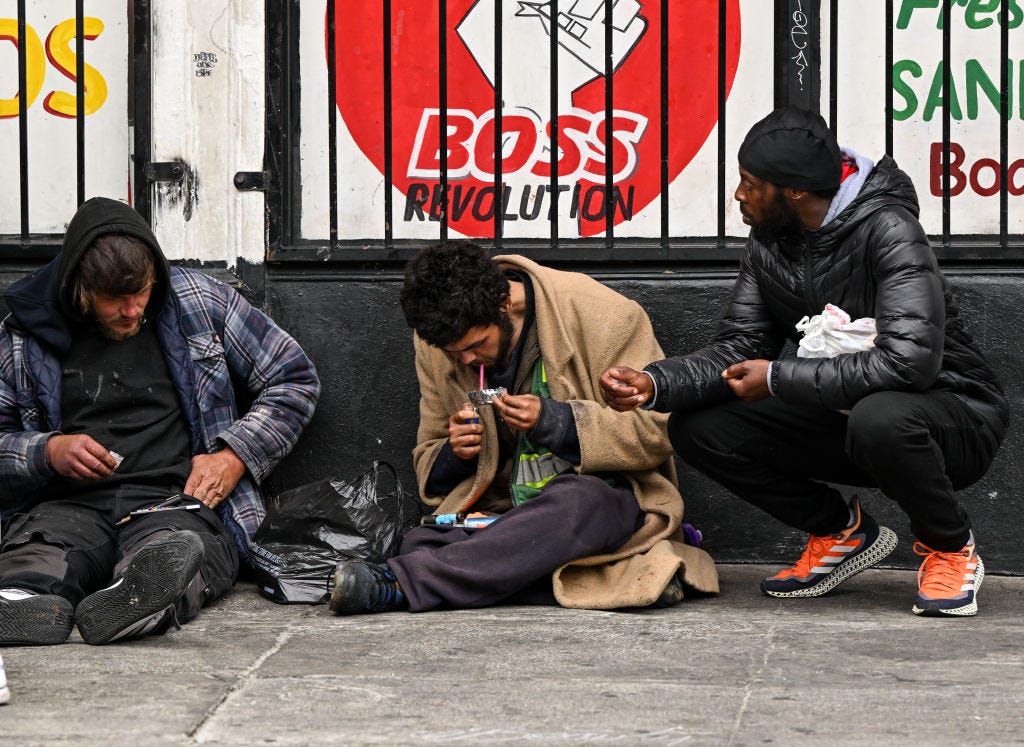
The Free Press

If the announcement Friday by conservative influencer Ashley St. Clair that she is the mother of Elon Musk’s 5-month-old child is confirmed, then the world’s richest man is a father of 13, by four moms. He’s been married and divorced three times, albeit with two of those marriages and divorces involving the same woman.
But who’s counting? Interestingly, not conservative Republicans.
People of all ideologies have various beefs with Musk: He’s too close to China; his electric cars are a subsidized boondoggle; he’s running roughshod over the federal government. One thing he’s rarely if ever accused of, however, is rampant violation of bourgeois morality.
There was a time when Musk’s lifestyle might have disqualified him from the political power he wields in the nominally conservative Trump administration (headed by a thrice-wed president). But Musk’s rise to political power despite his nontraditional family life epitomizes the decline of the old Moral Majority, which once set the culture war agenda for the GOP and even for some moderate Blue Dog Democrats.
Having won in 2016 partly through a tactical alliance with pro-lifers, Trump broke with GOP social conservatives in 2024, vowing to veto an abortion ban, backing marijuana legalization, and claiming to be “the father of IVF.” Some argue that bawdy “Barstool conservatism” now reigns among Republicans, a counterpart to Democrats’ most libertine tendencies.
That’s not quite accurate. There is no longer a constituency for politicizing Americans’ private choices—they can smoke and drink whatever, or sleep with whomever, they please.
But there is a constituency—Trump mobilized it to great effect—that wants to control behavior they see as affecting society at large. They care about which bathroom people use, and about shoplifting at the drug store and IV drug use on the street. Even playboy Musk, who denounced the “woke mind virus” in part because he blamed it for one of his children identifying as transgender, is part of this group. And unlike the old one, the new moral majority is still up for electoral grabs.
The phrase “moral majority” came from the organization founded in 1979 by Baptist pastor Jerry Falwell. Falwell mobilized millions of conservative evangelical Protestants to advocate what they called “traditional family values”: opposition to abortion, divorce, gay relationships, and so on. The voters Falwell inspired became so powerful that they not only helped install Ronald Reagan and George H. W. Bush in the White House, but also pushed Bill Clinton to capitulate on issues like the Defense of Marriage Act, which made it federal policy to recognize marriage only between a man and a woman.
Since the Moral Majority’s heyday, though, “traditional family values” have taken a beating. Today, majorities of Americans favor same-sex marriage, identify as pro-choice, and consider divorce morally acceptable. They want decisions about having children—including abortion and in vitro fertilization—left up to parents.
They’re fine with legal weed—Musk famously smoked it on Joe Rogan’s podcast—and gambling. Opposition to pornography has lessened. The personal indiscretions of politicians and their families—from Hunter Biden to Pete Hegseth—no longer yield the same outrage as in the days when Clinton’s dalliance with Monica Lewinsky was revealed.
In short, Americans no longer want to legislate about what takes place in their own homes, within their own families, or on their own laptops. They don’t like to be told how to live—either by the religious right or, more recently, by the scolding left.
Americans have not stopped making judgments about right and wrong, however. Voters are still motivated—indeed, they’re more motivated than ever—by issues of public behavior. And they are still willing to vote for those who moralize, insofar as they’re doing it about what goes on in the public square.
Take, for example, the debate over gender. According to a recent YouGov poll, Americans strongly favor discrimination protections for transgender people, including in the workplace. But a sizable majority also believes that gender “is determined by sex assigned at birth.” And they don’t support others’ opinions about gender being imposed on women’s sports, bathrooms, or schools. People are free to be transgender, says the consensus, but not to shape public spaces around their identity.
Or consider marijuana. A recent poll from my colleagues at the Manhattan Institute found that Americans strongly support legalizing personal use and possession of pot. But they also want bans on smoking it on public transit, in bars and restaurants, and near schools. Your pot is fine, in other words, so long as I or my children don’t have to smell it. More generally, Americans keep voting against leniency on public drug use and homeless encampments.
Even Trump’s signature issue, immigration, has a public morality angle. Americans have turned sharply in favor of less immigration. But they still believe immigration is good for the country, and are much more likely to blame illegal than legal immigrants for dysfunction. What changed was the disorder at the southern border under the Biden administration, and the spillover effect on schools, housing, and welfare rolls in blue states.
These concerns are not “moral” in the conventional sense—objecting to the stench of pot or the demands of too many immigrants is not a statement about the rightness or wrongness of pot-smoking or immigrating per se. But while Americans no longer judge the intrinsic morality of others’ acts, they still judge. Specifically, they judge when others’ behavior harms or inconveniences those around them. Our laissez-faire attitudes stop where others’ actions affect us.
The distinction between public and private was made particularly salient by the cultural revolutionaries of the summer of 2020. Radical social justice advocates noticed that Americans had grown more permissive of private indiscretion and inferred that they could push for public tolerance of deviance. A ballot measure that decriminalized possession of small amounts of drugs in Oregon, and Manhattan district attorney Cyrus Vance’s announcement he would no longer prosecute prostitutes, followed. The backlash against these policies—Oregon’s repeal of decriminalization, or California’s new, tougher property crime law—shows that one kind of permissiveness does not beget the other.
Both Democrats and Republicans will need to contend with this new moral majority. For Republicans, that means making room in a party that until recently had strong views on private behavior; their arguments will now need to be made in terms of the public good. For Democrats, it means belatedly recognizing that moral permissiveness is not a license to introduce social anarchy.
Trump understood the new moral majority. So do Congressional Republicans like Rep. Mike Lawler, who won reelection in his New York swing district with ads claiming “there can be no place for extremism in women’s healthcare.” Democratic Representative Seth Moulton, who after the presidential election came out against transgender girls’ participation in girls sports, gets it, too.
The new moral majority is still up for grabs. Both sides could still capture the votes of the elderly woman sick of smelling pot when she goes for a walk; of the gay dad who objects to drag-queen story hour at his kid’s school; of the couple who had kids by IVF but can’t stand Diversity, Equity, and Inclusion. And given the lopsided support for such views, whoever wins those votes will attain a powerful constituency.
Charles Fain Lehman is a fellow at the Manhattan Institute and a contributing editor of City Journal.
















